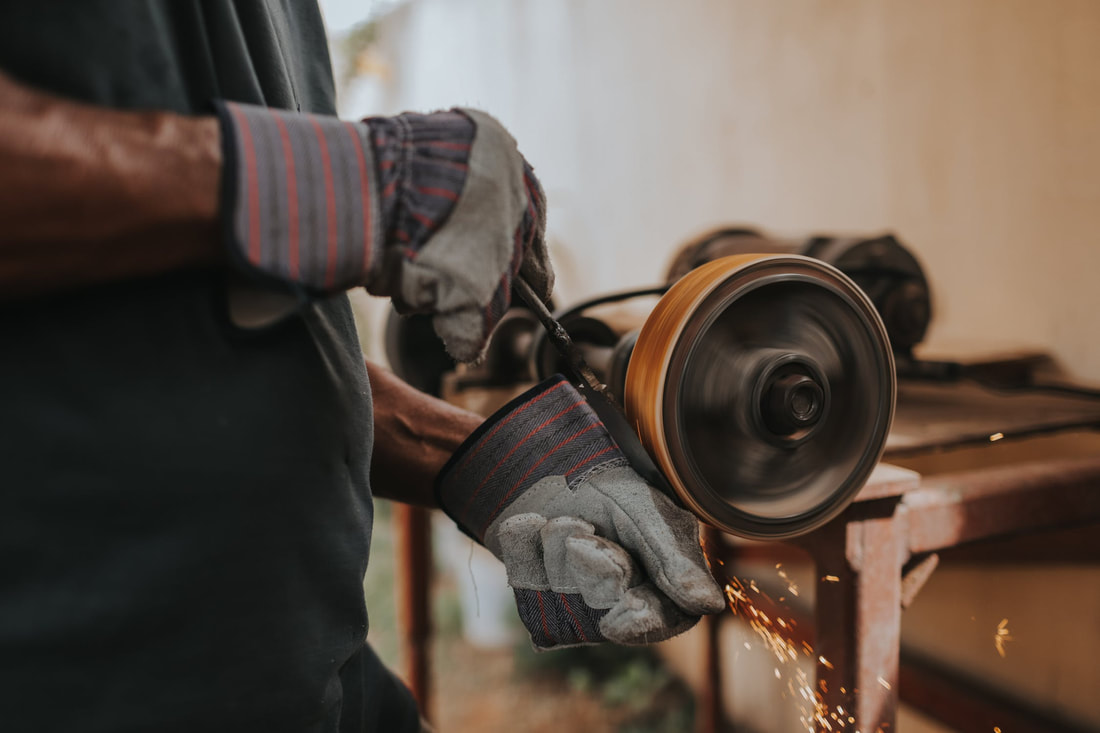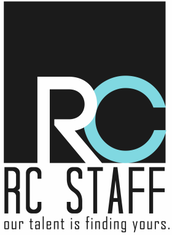 In recent years, a skills gap seems to have developed in the US's manufacturing industry. It is estimated that over the next ten years or so, almost 3.5 million jobs will be required to be filled in the sector, yet already manufacturing companies are finding it hard to secure the right people. On the other side of the fence, it has never been a better time to be someone who is looking for a manufacturing job. Such 'hands-on' jobs do not always appeal to millennials, who – apparently – prefer to spend all their time seated in front of some type of screen or another. Not only does this mean that a skilled manufacturing employee will have the luxury of being able to choose from a number of potential positions with different companies all with decent levels of remuneration, but in addition manufacturing is becoming an increasingly attractive option for salaried employment. Why has a skills gap developed in the US's manufacturing sector? If a career in manufacturing is looking increasingly worthwhile, why has a skills gap developed? Economic experts point to the trend between 1990-2010 of relocation by manufacturing companies. The attractiveness of moving factories and manufacturing plants to more cost-effective destinations (including offshore) cost the United States millions of manufacturing jobs. As a result, people entering the job market for the first time could not include manufacturing on their list of available career opportunities. This has led to a lack of talent in the employment pool of people with manufacturing skills. The attractiveness of relocation overseas has diminished considerably since 2010. Relocation helped boost foreign economies – particular in Asia – leading to cost increases. The 'cheap labor' of the 1990s is no longer available, and foreign energy prices have spiraled leading to increases in the cost of logistics. Employee-wise, foreign workers have recognized their worth and are demanding higher levels of remuneration. The United States is Again the Most Attractive Base for Manufacturing Companies This means that US-based companies are coming back home, plus the US manufacturing industry has been experiencing a boom period since 2009. The US is once again becoming the most attractive place for manufacturing companies, yet they are encountering a skills shortage that they themselves have helped to create. People born in the 1960s are reaching retirement age and they are not being replaced by the young, for whom a career in manufacturing does not seem an attractive one. The US economy could suffer if these jobs are not filled. For every one manufacturing job, another two and a half jobs are created in other industries as a result. Manufacturing investment creates 133% of the same investment value for other sectors too. The good news here is that as of yesterday (July 29th, 2019), U.S. Manufacturers pledged to train 1.2 million workers Source: FoxBusiness.com f you are a manufacturer in Northeast Ohio struggling to fill a key role with the right person, or if you are a skilled and experienced manufacturing employee looking for a new challenge and the perfect job, then our team here at RC Staff can help. We specialize in manufacturing recruitment and do all we can to find the right person for the right role. Contact us now at (330) 983 4400 or use our online contact form for more information. If you are an employer, here's how we help Akron-area manufacturers find better workers. If you are looking for a job in manufacturing, you may think that the interview is less important than if you were interviewing for say, an office job. As long as you have the required skills, does anything else matter? Here are three tips on how to interview for a job:Make That All-Important First Impression As humans we can be shallow at times – we make our minds up about people within the first few moments of meeting them, and it takes a lot for that first impression to fade. If you turn up for an interview in shabby clothes, unshaven (if you are male!) and with dirty fingernails, your interviewer will feel you are not taking the interview seriously, and will therefore not take your job seriously. Make sure you are dressed neatly, that you look presentable and your personal hygiene is absolutely tip-top. Choose the Right Clothing If you are interviewing for a job in manufacturing, your interviewer may think it strange if you turn up in a three-piece suit and tie. That doesn't give you the excuse to turn up in shorts and wearing the jersey of your favorite sports team, though. The best attire is a collared shirt, slacks (not jeans!) and dress shoes. Avoid bright colors, outlandish hairstyles or weird attire. If you have tattoos or piercings it might be best to cover them up during your job interview. Be Prepared Nothing annoys an interviewer more than an unprepared candidate. If you don't care about the interview, then you give the impression that you don't care about the job. Even if you think you know all about your industry, there's always the opportunity to learn more, or to refresh what you know. It's also worthwhile learning a little bit about the company you hope to be working for. You can also arm yourself by preparing answers for some of the most commonly asked interview questions. These are likely to include "old favorites" such as:
When the interview concludes it’s important that you create a strong and friendly final impression. Shake hands firmly (but not in a vice-like grip) and thank your interviewer for their time. If you are looking for the perfect role, then our team would be delighted to hear from you. You can contact RC Staff at (330) 983-4400, or you can use the online contact form that is available on our website. Our staffing agency has been working in the staffing industry for decades and would be more than happy to offer our assistance when it comes to placing you with an employer that will truly value you as an individual.  Your company is only successful if all the key aspects of your business are running as smoothly and efficiently as possible. To do this, you need the right people in the right roles, and for those people to be the best fit for those roles. If you’re putting square pegs into round holes, then your business will be stuck at ground level while your competitors’ businesses are soaring. Of course, finding the right people is never easy. You are spending time running your business and probably do not have the luxury of organizing a worldwide search in order to find the very best employees to add the most value possible to what you do. A Staffing Agency Will Reduce the Risk Inherent with Staff Recruitment That’s where a great staffing agency comes in. You won’t have to spend time identifying the right people for the roles you need filling as the agency will already know the people in their talent pool and will be able to do that for you. You just tell them what – or rather whom – you need and the staffing agency will do the rest. You will save time and resources and although you will be paying agency fees, the amount of money you will save in the medium-to-long term will more than make up for it. It’s a decision you will make that will end up paying for itself. At RC Staff in Cuyahoga Falls, Ohio, we can help you fulfill all your possible staffing needs with effective, high-quality employees. Our team of staffing professionals are highly-trained and all have extensive levels of experience finding, screening and placing quality job candidates throughout the Akron-Cleveland area. This enables them to hit the ground running to fulfill key areas of your business needs. Hiring Temporary Workers for Light Industrial, Skilled Trades, and Administrative Roles We understand the difficulty in finding the right hires for temporary work and the risks that any company faces when they are seeking to fulfill important roles within their day-to-day operations. That’s why we diligently scrutinize our associates so we make sure we only ever have the very best people available for our clients. Let RC Staff find the right people for the roles that are crucial to your business success. We can provide your business with the best services of temporary hire, temp-to-hire employees and recruiting for direct hire. We can also help you with strategic staffing, and will provide you with payroll solutions that will free you up to concentrate on other aspects of your company that are key to its success. We will take your specific staffing needs and job requirements into consideration, and then work to provide you with the very best hires possible. By efficiently narrowing down the best job candidates for your job openings, RC Staff will help you to reduce costs, save time, and give you a competitive advantage by recruiting and retaining better quality employees. Your first step in finding the talent that can really benefit your business is to contact us here at RC Staff. A member of our friendly team is always available to advise you, and to answer any questions that you may have. Call us today to discuss your staffing needs at (330) 983-4400 or use the online contact form that’s available for you on our website.  When you are smack dab in the middle of searching for a job it’s easy to feel like you’re on your own. But you actually have a friend out there! Recruiters. Some recruiters work with hiring managers at companies, others work as headhunters but their goal is the same: to fill an open position with the right person. They can be a huge help in getting your resume in front of just the right people. The Contingency Recruiter Contingency recruiters—aka “headhunters”—works independently of the hiring company, often at a staffing firm. They’re contracted by a company to fill a position, but are only compensated if they find the candidate who’s hired. How to Find Them Similar to the corporate recruiter, they’ll often reach out to you. If you reach out, make sure you choose someone who specializes in your field or industry, as she’ll have the best connections and openings. How it Works The recruiter will call you in for an informational-style interview, either in person or over the phone, to get a sense of your background and career goals. After the interview, she’ll contact you if she’s hiring for positions that might be a good fit. At this point, you can decide whether or not you want to be considered. Once you give her the green light, she’ll send your resume on to the company and help coordinate any interviews. If at any point the company rejects you from continuing on in the hiring process, she’ll pass on their feedback. How to Make the Most of It As you’re going through the process, be honest and open about your background, goals, and how you feel about the positions the recruiter sends your way. It’s in both of your best interest that you end up somewhere that will be a good fit, so if the position doesn’t sound right to you, ask more about it or let her know your specific concerns—the earlier, the better. Also, stay in close contact with your recruiter. Follow up with her every few weeks if you haven’t heard from her. And if you find a job on your own, respect her time by letting her know, so she can stop considering you for positions. Of course, working with a recruiter isn't a guarantee that you’ll get hired—but it can help you out by giving you insider information, finding job openings you don’t see elsewhere, and landing your resume to the top of the pile. And at the very least, it’ll make the job search process a little less lonely. 1. Take the time to get to know your potential employer!The key to success in any job interview is to take the time to get to know the background and history of your potential employer's company! You should understand the company, the requirements of the job, and a little history of your interviewer and their role in the company. The more research you conduct, the more you’ll understand the employer, and the better you’ll be able to answer interview questions. Utilize the internet and search engines, blogs, job reviews, and the company's website to gain as much knowledge as possible!
2. Review generalized interview questions and practice your responsesAnother way to prepare for your interview is to look into potential interview questions and practice what your answer would be. Most commonly, interviews tend to be composed of the same "type" of questions, just in different formats. If you prepare yourself with these potential questions, you will be confident in your answers and not caught off guard. 3. Dress for SuccessTake the time and effort to plan out an appropriate interview outfit. Its always a good idea to make a good first impression! Remember that it’s always better to be overdressed than under. Ensure your clothes are clean, wrinkle free, appropriate for the type of interview, and not too revealing! If possible, be sure to freshen your breath before the interview as well. 4. Arrive on TimeThere is no excuse ever for arriving late to an interview. Strive to arrive about 15 minutes before your scheduled interview to complete additional paperwork and allow yourself time to get settled. 5. Make Good First ImpressionsBe polite and offer warm greetings to everyone you meet. Employers often are curious how job applicants treat staff members. When it’s time for the interview, keep in mind that first impressions interviewers get in the first few seconds of meeting you can make or break an interview. Remember that having a positive attitude and expressing enthusiasm for the job and employer are vital in the initial stages of the interview. 6. Be Confident, Cool, and CollectedBe confident in the quality of your answers. You should always strive to answer questions truthfully and authentically. You want to provide answers that showcase your work ethic, experience, and dedication. Always attempt to keep your interview responses short and to the point. One tip of advice, never badmouth a previous employer, boss, or co-worker! Ever! 7. Remember the Importance of Body LanguagePoor body language can have a negative effect on your interview outcome! Effective forms of body language include smiling, eye contact, solid posture, active listening, and nodding. Negative traits such as slouching, looking off in the distance, playing with a pen or phone, fidgeting in a chair, chewing gum, or mumbling can end your interview right then and there. 8. Ask QuestionsEven if the interviewer was thorough in his or her discussions about the job and what is expected, you must ask a few questions. This shows that you have done your research and that you are curious. The smart job seeker prepares questions to ask days before the interview. 9. Sell YourselfInterviews are all about selling yourself. Sometimes you MAY not be the most qualified candidate but often times they will choose you based on how you sold yourself! If you provide to them what you offer as an employee and how YOU will benefit THEM, that is often enough. Ask about the next steps in the process and about how long the employer expects to make a decision about the position. 10. Thank Interviewer(s) It is important to take the time in thanking each person who interviews you. Start the process while at the interview, thanking each person who interviewed you before you leave. Write thank-you emails shortly after the interview and in doing so it will certainly give you an edge over any of the other finalists who didn’t bother to send thank-you notes. |
AuthorWrite something about yourself. No need to be fancy, just an overview. Archives
July 2019
Categories |


 RSS Feed
RSS Feed